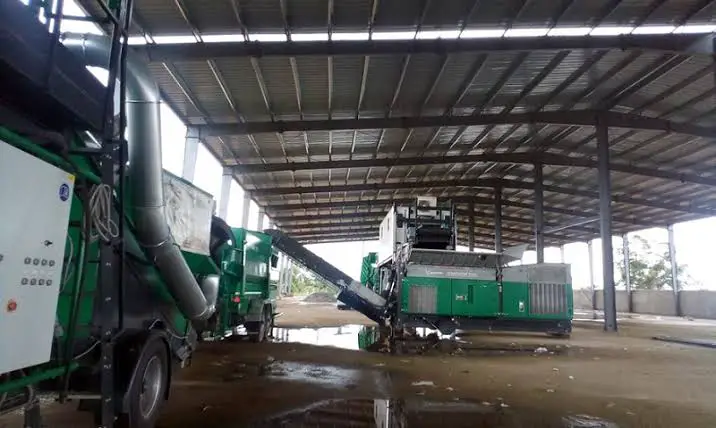The Bono Regional Waste Treatment plant is intended to recycle roughly 400 metric tons of waste per day in the region, and construction work is moving forward steadily. If there are no unexpected issues, operations should commence in August on the project being carried out by Zoomlion Company Limited, which is currently 95% complete.
Read also:Contract Awarded for Construction of Hann Bay Wastewater Treatment Plant in Dakar, Senegal
Prior to the general elections in December 2020, President Nana Addo Dankwa Akufo-Addo performed the sod-cutting ceremony in Wawasua in the Sunyani West District to commence construction work. Due to land issues, the Bono Regional Waste Treatment Plant project that was supposed to be finished in 2021 has missed several deadlines.
The composite plant, the medical waste plant, the administration block, changing rooms, and the power plant were all completed on the facility. This is according to Ms. Esther Abayeta Asadoo, the regional manager of Zoomlion.
She continued by saying that the project’s machinery, such as the material recovery facility, the mobile sorting, and the compositing, had been installed and that the only remaining work was tile work on the side handling medical waste.
The work on the compost site is completed. There is still some technical work to be done on the medical waste treatment plant. She pledged that if everything goes according to plan, operations should start by August of this year.
Bono Regional Waste Treatment Plant initial scheduled operation date
According to Ms. Asadoo operations were scheduled to begin by December of last year, but after the President cut the sod, a land issue arose that required resolution prior to the start of work.
Due to the fact that not all waste can be recycled and that some materials, such as waste water and metals, she added, must be disposed of properly. She claimed that they were also constructing residual land-filled sites.
She noted that this would ensure that every farmer in the area got organic fertilizer to grow their crops. This is because each machine would separate the destructible elements to be utilized for compost and distributed to farmers.
Ms. Asadoo asserts that just Sunyani generates 280 metric tons of waste every day. She adds that the plant also takes waste from other districts, including Dormaa, Berekum, and Wamfie.
She showed that nearly 25 landowners had received just compensation. Also, once actual operations begin, the Bono Regional Waste Treatment Plant will create over 1,000 indirect jobs in addition to about 50 direct jobs.

